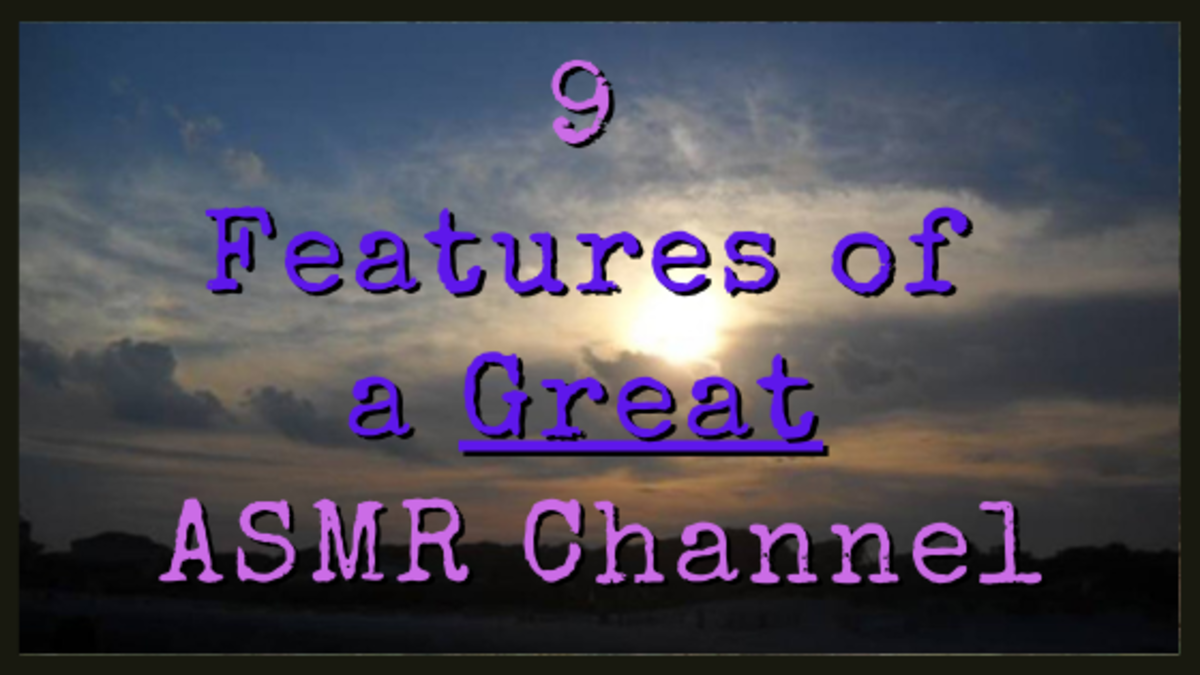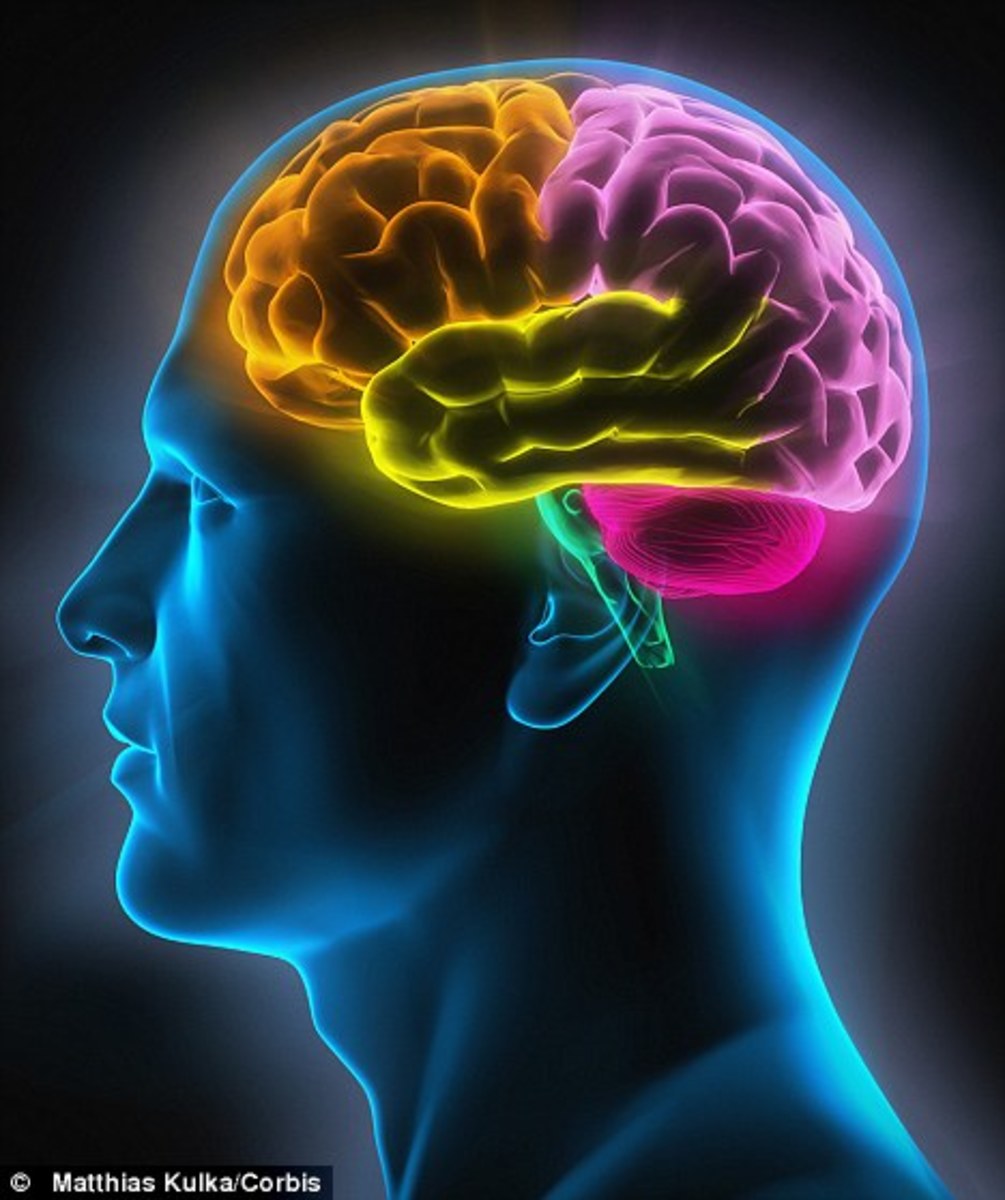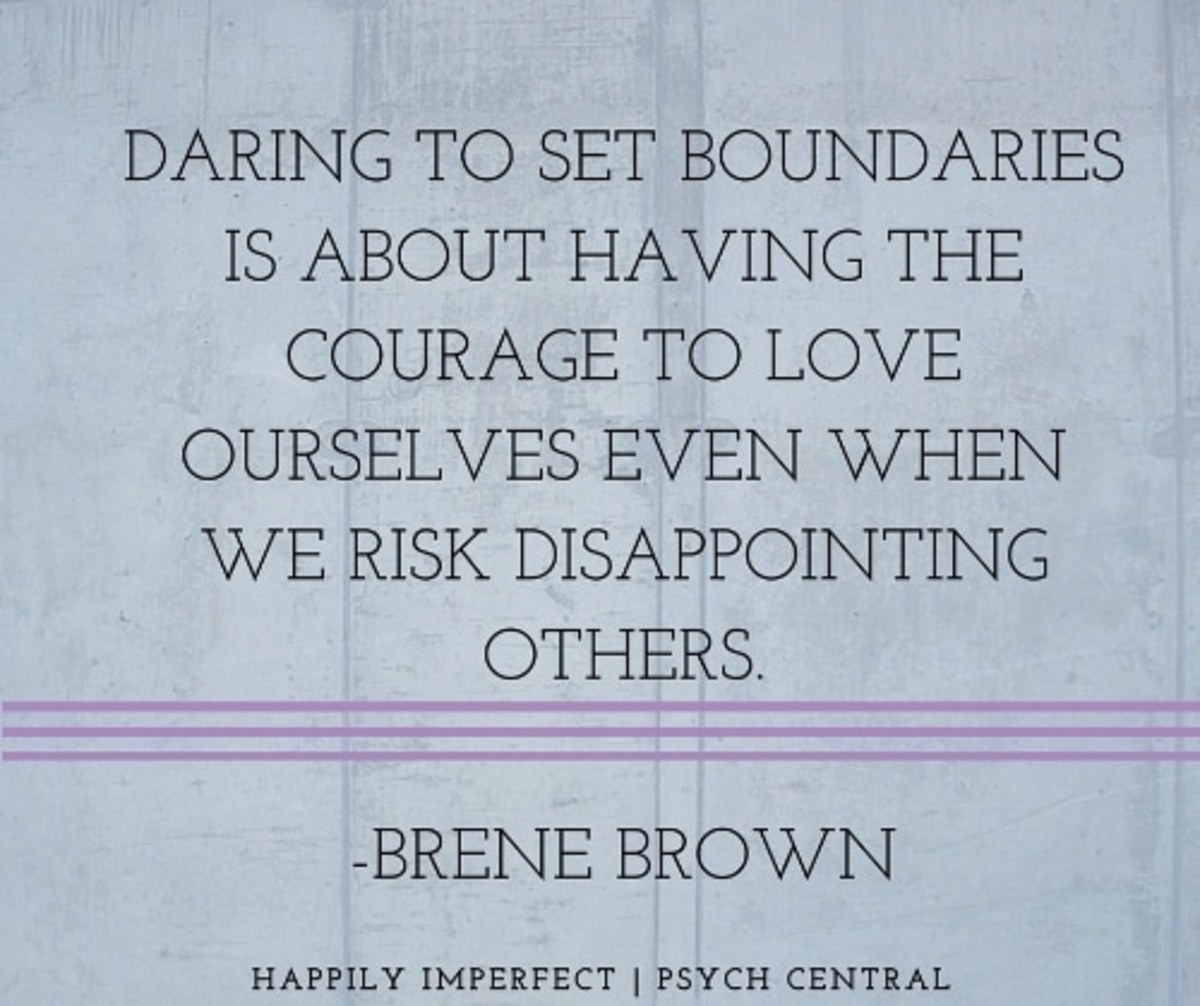ASMR: The Pleasurable Tingling in Your Head
You probably thought you were the only one to experience that pleasurable tingling that starts in your head. As it happens, you're not the only one, but it's also not something everyone experiences. Those of us who are blessed with what has been labeled ASMR have difficulty describing it to others, or making it sound reasonable, but it is what it is: a pleasurable tingling brought on by certain social experiences.
I thought I was alone in having this experience for most of my life. I first became aware of the sensation when I was about 11 or 12. A younger cousin was playing with his toy cars on a bed, and when the car reached me, he treated my leg as part of the terrain, a hill of some sort I guess. Then I suddenly felt this tingling in my head, felt a little sleepy, and was overcome with feelings of benevolence toward my cousin. As I grew up, I would occasionally experience the sensation. I liked it very much. Everyone who experiences it knows it's extraordinarily pleasurable and even addictive. Of course, I hadn't yet become addicted. The sensation was so rare and unpredictable to me then that I could scarcely have imagined being able to seek it out.
Fast-forward a dozen years and we have a breakthrough for ASMR experiences: YouTube. Before we had to await those quiet, peaceful moments when we'd find someone working silently on some task, when we'd go for a haircut, or when some show-and-tell scenario would occur. No longer. We could now type in "my collection" on YouTube and have instant ASMR. Sure, I would have to search through a few videos before I found one that did what I wanted it to do, namely create that sensation, but it was worth it. I always felt a little weird doing this, a little exploitative, because I knew people made collection videos to show off their collections, not to have some guy getting tingling sensations from seeing them touching their possessions. So, I never really tried talking to anyone about it. One time I brought it up to a friend and he had no idea what I was talking about. I might as well have asked him how many wings a troobaplop has.
One night, about a week or two before the time of writing, I typed "flipping through a book" into youtube, knowing such a video might trigger the pleasurable sensation and, with it, help me fall asleep. I found a video with 'ASMR' in the title and a description in which the uploader claims to flip through a book and run a paintbrush over the pages. This activity seemed to be so abstract, so obviously intended to create the ASMR sensation, that that's exactly what it had to be: a video designed to give viewers that pleasurable sensation. I glanced in the related videos and noticed more of this "ASMR" business and immediately googled it. Lo and behold, I had discovered that I was not alone after all, that many people had this sensation and has begun to talk about it, think about it.
Unfortunately, from what I gather, all discussion of ASMR comes about only with the internet. The term ASMR was one invented by one of the earliest writers on the sensation. I personally don't like the term, as I find it needlessly convoluted and vague. However, the term has gained significantly widespread use, to the point that I see no value in challenging the term. So let's continue to speak of ASMR. While the term gives a veneer of 'scientificality' to the experience, the truth is, there is little to no research on this sensation prior to the last two years and that research is all of the introspective variety from those of us who experience it. Lots of introspective data is not to be disvalued, however. While one person doing introspection may not yield the answers, the experiences of many can certainly help. In what follows, I hope to contribute by basing my analysis of ASMR on my own personal experiences with it.
ASMR seems to me to have two modes of cause:
1. Physiological
2. Psychological
Of the Physiological variety, there are
i. Visual triggers
ii. Aural triggers
iii. Tactile triggers
To my knowledge, no-one has ever reported tastes or smells causing ASMR and I certainly have never had such an experience. However, seeing (i) someone silently manipulating certain objects or flipping through a book can cause the sensation. Hearing (ii) certain sounds, like flipping pages, crinkling of materials like plastic or paper, or soft speech and whispers can cause it. And having (iii) my hair or the back of my neck stroked can cause the sensation. Often (i) and (ii) are best taken together, though they can be effective separated. (iii) is usually separate, but ASMR is certainly diminished by loud, harsh sounds and enhanced to gentle speech or whispers.
Of the Psychological varierty, the triggers are less easy to differentiate into categories. I also find this form of trigger very rarely discussed by ASMR experiencers, who often focus exclusively on the physiological triggers. As such, I will describe what, in my experiences, psychologically makes me disposed to ASMR. Perhaps from this we can draw some categories. One of the first points to note regarding the psychological trigger of ASMR is that many of the videos designed by ASMR experiencers for other ASMR experiencers fail or are not as effective as they could be due to their self-awareness. As they are intentionally designed to give me the ASMR sensation, I find, paradoxically, that they are less effective at doing so. The naivete of those videos of collections I used to watch was part of the experience that made them so effective. The question is, why? What makes them different? The main difference, it seems to me, is one of whose attention is solicited. When the video is trying to serve me and I am, as it were, soliciting its attention for creating ASMR, the experience is weakened. However, when my attention is solicited, as when someone is genuinely trying to show me their collection of Yu-Gi-Oh cards or whatever the case may be, then the experience of ASMR is much more effective.
We may not yet want to stop our explanation, though. I don't think the buck stops at the solicitation of attention. Part of the experience is that I don't care about Yu-Gi-Oh cards. I really couldn't care less about those cards. To most people, watching a video in which someone displays their collection of cards that one cares nothing about would be boring. For me, the video is strangely soothing and pleasurable. It doesn't just solicit my attention, it solicits my benevolence as well, my kindness to show attention toward this person on a subject that has no interest to me. My attention has no purpose for me, no purpose at all really, other than to show this person the attention they seek. This is even more effective when it is done in person, because it is directly and clearly my attention that is sought, whereas the video seeks the attention of any who will press 'play'.
If I return to the experience in which I first noticed ASMR, when my cousin ran his toy car over my leg, I think I can say now what made the experience trigger my ASMR. 1(i). The visual of my cousin quietly playing with his toy car. 1(ii). The sound of the toy car moving along the surface of the bed and my cousin's soft car sounds. 1(iii). The physical touch of the toy car rolling over my leg. 2. The benevolent attention solicited in allowing myself to play the 'mountain' for his toy car game.
That is the cause. What about the effects of ASMR? Again, I will divide the effects into the two major modes.
1. Physiological
(i) Tingling sensation in the head
(ii) Heavy eyelids, drowsiness
2. Psychological
(i) Feelings of benevolence
(ii) Guilt
The tingling sensation, which is so pleasurable, everyone who experiences ASMR knows. The drowsiness is familiar to us all as well, as many of us, I've learned, watch these videos as an aid to sleep. What's rarely discussed, again, are the psychological effects of ASMR. I find myself feeling very benevolent after an ASMR experience. Yes, one could say the sheer relaxing power of ASMR could trigger this. That may be the case. I don't think it is a full explanation for just how benevolent I feel after an ASMR experience, however. I find myself especially benevolent toward the one who causes the experience. Again, this seems to me more than just gratitude for the experience. What I conjecture is that the pleasurable tingling in the head may be causing, caused by, or merely occurring together with the release of oxytocin. Oxytocin is a brain chemical known to produce feelings of benevolence, a chemical researchers have found can be released just from attention by a clever salesman. It's also released by orgasms, which is why we feel benevolent toward good sexual partners and why make-up sex is so successful. So we could add a hypothesis, that there is a third Physiological effect, 1(iii) Release of oxytocin.
The second psychological effect may be puzzling, even to those who routinely experience ASMR. I have not had time to peruse forums to see if other ASMR experiencers feel this way, but I find myself, after the experience is over and sometimes before it begins, feeling I am quite creepy for pursuing this experience. Perhaps because it is a physical pleasure, and perhaps because the pleasure is--especially if I'm right about the oxytocin--loosely similar to an orgasm, there's something masturbatory about seeking the ASMR experience. Watching videos made just for ASMR is fine; it's ASMR porn. Watching videos of children showing their legos, however, can make one feel very creepy, exploitative, and predatory. With this come certain feelings of guilt. Of course, I don't believe there is truly anything perverse about ASMR. Whatever the reason some of us have this experience hardwired into us, its source is likely one born in infancy from something like our relationship to our mothers, when mother strokes our hair or sings to us to put us to sleep. If it is indeed genetic instead of environmental, then its evolutionary value may be one to do with maternal or paternal roles, whereby we feel benevolence toward our children. This is purely conjecture, of course. But they're plausible suggestions. I see nothing plausible in seeing something sexual in the experience of ASMR.At the time of writing, I really have no more to contribute on the topic. I have described my experience and how I've thought about it over the years, particularly in the last two weeks. I hope this information helps someone, those who experience it, research it, and those who are just curious.
Further Reading and Research
- ASMR: What is This Tingling Sensation in my Head?
An earlier Hubpages article on ASMR. - SOUNDsculptures's Channel - YouTube
A YouTube channel with some effective ASMR videos, mostly appealing to the aural variety. - ASMR Videos
A website that catalogues videos designed to trigger ASMR. - ASMR Research & Support
A website dedicated to ASMR research.







